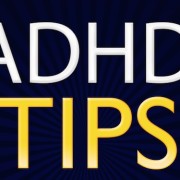Sex Life and Emotional Wellness after Traumatic Brain Injury
Sex Life and Emotional Wellness after Traumatic Brain Injury

For both male and female adults recovering from traumatic brain injuries (TBI), self-confidence and sexual enjoyment can be compromised on the road to recovery. Sexual difficulties are not trivial, as they can lead to low self-esteem and significant relationship problems. Decreased sex drive, decreased arousal, erectile dysfunction, inability to achieve orgasm, and/or hypersexuality are common experiences after TBI.
Neurotransmitters are the messengers between brain cells and are vital for cognitive function and emotional well being. Neurotransmitters are also responsible for feelings of intimacy and sexual arousal. Moreover, they message the body to send blood to sexual organs. Therefore, assaults to the brain that affect its chemical makeup may have significant implications for one’s physical satisfaction and intimate relationships.
Every TBI case is different and, depending on the primary injury and consequent manifestation of the disease, the extent and nature of sexual wellness in each patient will vary. It is our goal at Pathways to tailor treatment and therapy options in a personalized manner.
Sexual dysfunction after TBI can result from a primary direct assault to the brain or a secondary cause downstream of the initial impact. The location of the brain that has been insulted will dictate the type of sexual problems one may encounter. Even within a region of a brain, specific subregions entail different functions. For instance, within the frontal lobe of the brain, damage to the dorsolateral frontal lobe typically leads to a reduced sex drive while damage to the orbitofrontal region may lead to hypersexuality. When damage impairs neurochemical/neuroendrocrine functions of the brain, a secondary cause of compromised sexual function can result from the impairment of blood hormone levels. Medications, another secondary source of sexual impairment, such as anticonvulsants, antidepressants, anticholinergics, and serotonergic agonists can reduce sex drive, among other side effects. Anxiety and depression, often coinciding with TBI can also interfere with sexual functioning and desire.
At Pathways, we are here to make an environment of comfort and openness regarding sexuality concerns. Mental well-being and sexual health is incorporated into our comprehensive evaluation and treatment of TBIs.
The Pathways team of professionals has helped thousands of people with brain injuries. We are Dedicated to effective and compassionate care for individuals with neurological challenges.
The post Sex Life and Emotional Wellness after Traumatic Brain Injury appeared first on Pathways Neuropsychology Associates.
Source: Pathways Neuropsychology
Sex Life and Emotional Wellness after Traumatic Brain Injury





 A new study suggests there’s some science behind the claims made for mindfulness meditation. The benefits of mindfulness meditation, increasingly popular in recent years, are supposed to be many: reduced stress and risk for various diseases, improved well-being, a rewired brain. But the experimental bases to support these claims have been few. Supporters of the practice have relied on very small samples of unrepresentative subjects, like isolated Buddhist monks who spend hours meditating every day, or on studies that generally were not randomized and did not include placebo control groups.
A new study suggests there’s some science behind the claims made for mindfulness meditation. The benefits of mindfulness meditation, increasingly popular in recent years, are supposed to be many: reduced stress and risk for various diseases, improved well-being, a rewired brain. But the experimental bases to support these claims have been few. Supporters of the practice have relied on very small samples of unrepresentative subjects, like isolated Buddhist monks who spend hours meditating every day, or on studies that generally were not randomized and did not include placebo control groups.



